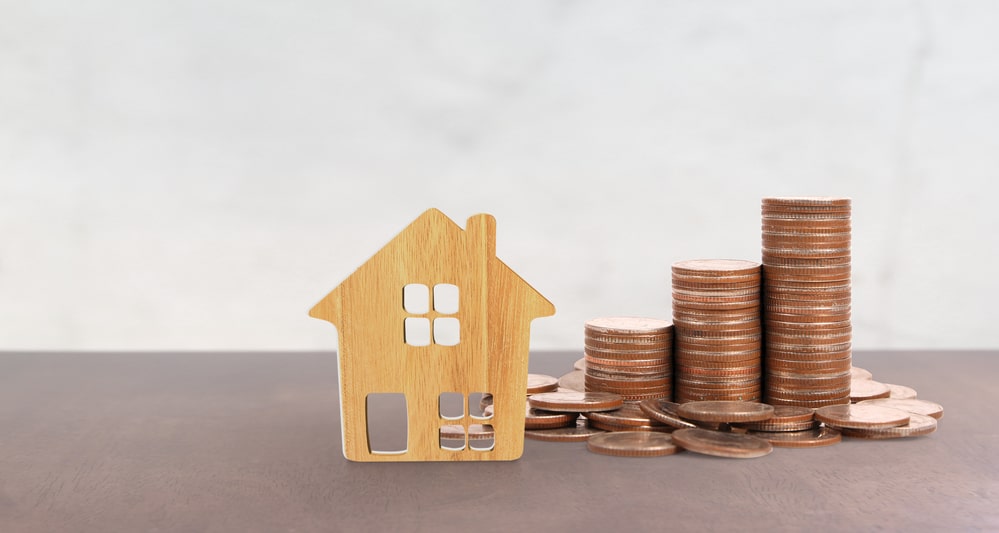How Often Can You Refinance Your Home? An Investor’s Guide
Refinancing a mortgage is not uncommon; it can be a great way to take advantage of a better interest rate and lower your monthly payments. You can also refinance your home to get a cash-out loan against the equity you’ve built.
The real question is, how often can you refinance your home? Are there any limits and drawbacks? Keep reading to understand when refinancing your house a second or third time is a good idea and when it might be better to seek an alternative.
How Many Times Can You Refinance Your Home?
“How often can I refinance my house?” The answer to this common question is that there is no limit. Legally speaking, you can refinance your house as often as you’d like. However, refinancing a mortgage can be costly, and it may not always make practical or financial sense.
In this guide, we’ll discuss several reasons why you might want to refinance your house again, plus several reasons why you wouldn’t. Before we get started, let’s go over a cash-out refinance example.
Example of a Cash-Out Refinance
A cash-out refinance occurs when you take out a loan against a property you already own. You need to have built up some equity in the property for this to be an option.
Before you take out a loan by refinancing your property, you first need to find out how much equity you have. Most lenders won’t allow you to take out your full equity. Also note that the allowable size of the loan is reduced each time you refinance your mortgage. Here’s an example to help illustrate.
Let’s say that you’ve paid off $100,000 of your mortgage and your principal balance is $200,000. You pursue a cash-out refinance because you have about $50,000 in repairs and renovations. Your new loan principal is $250,000 after cashing out $50,000.
Fast-forward three years. You’ve paid off $5,000 from the loan principal, including interest. Your loan balance is $245,000, and your equity is $55,000. Your daughter is accepted into a top-rated private school and needs $50,000 for her first year of tuition and living.
Unfortunately, lenders will typically only allow refinances that are between 80-90% of the total loan value. If you were to refinance a second time, $50,000 would be more than 90% of your current equity. Lenders may deny your refinance request or apply egregiously high interest rates. This can deter you from refinancing your home a second time and lead you to seek alternatives.

5 Reasons to Refinance Your Home, Again
While the decision to refinance may not make sense for some individuals, there are several good reasons for refinancing your house again. Here are 5 possible reasons why you might choose to refinance your mortgage more than once:
- Lower interest rates.
- Reduce monthly payments.
- Pay off your loan faster.
- Turn your equity into cash.
- Eliminate your private mortgage insurance.
1. Lower Interest Rates
Even if you’ve already refinanced your home once, there may come a time when interest rates take a dip. It may make sense to refinance your home a second time to take advantage of this lower interest rate. It’s possible that you can save money without changing the term of your loan.
Even a small change in your mortgage interest rate can save you hundreds, or even thousands, of dollars in the long run.
2. Reduce Monthly Payments
Perhaps you have a cash flow issue. When we first buy a house, we typically run our finances to make sure that we can afford our mortgage payments. However, the standard 30 years to pay back your mortgage loan is a long time. Anything can happen, including a growing family, economic shifts, and job changes. These events can all influence your finances and your monthly cash flow.
There may come a time when you choose to refinance. By extending the term of the loan, thus giving you more time to pay off your mortgage, you can decrease your monthly mortgage payment. There is a balance between improving your cash flow and making a longer commitment to your mortgage. However, it may be worth it if it brings you more breathing room each month.
3. Pay Off Your Loan Faster
On the flip side, maybe you want to pay off your mortgage even faster than you planned. You can work with a lender to refinance your mortgage to a shorter term. This means that you’ll have less time to pay off the same mortgage.
Although your monthly payments will go off, you’ll pay off your mortgage sooner and save more money in the long run. Just paying a few hundred extra dollars toward your mortgage per month might save you years and tens of thousands of dollars overall.
4. Turn Your Equity Into Cash
You may even have the opportunity to turn your home equity into cash. If the value of your home has increased since you purchased it or last refinanced it, you are sitting on some equity that can be cashed out. It’s recommended that you retain at least 20% of your equity if you choose to refinance your mortgage.
5. Eliminate Your Private Mortgage Insurance
If you’ve taken out an FHA (Federal Housing Administration) loan, or put down less than 20% on your home purchase, then you’re paying private mortgage insurance (PMI).
The good news here is that you can eliminate your PMI once you’ve built 20% equity in your home. You can do this by asking your lender to cancel your PMI as soon as you’ve hit 20%. However, if you took out an FHA loan, you’ll want to refinance to a conventional loan so that you’re no longer required to pay this lender’s insurance premium on a monthly basis.
When You Should Not Refinance Your Home
Refinancing your home is a smart decision in some instances, and it can even save you a considerable sum of money. In other instances it can cost you, especially if you refinance for all the wrong reasons. Here are a few circumstances in which you likely should not refinance your home.
Interest Rates Have Only Dropped Slightly
First and foremost, going through the trouble of refinancing your mortgage is not worth it if interest rates have only decreased marginally. Although it might be tempting to keep a watchful eye on the market and take advantage of any slight drop, it could cost you.
You’re required to pay closing costs every time you take out a new loan on the house. If the interest rate has only gone down slightly, your closing costs could cost you more than the little bit of money you would have saved.
Your Credit Score has Only Increased Slightly
Homeowners might be tempted to refinance their mortgage because of an improvement in their credit score. This is because creditworthiness is one of several factors that determine the interest rate a lender will extend to you.
Unfortunately, small bumps in your credit score may not make a difference. Lenders analyze credit scores in tiers and not so much the exact score. It may be worth the effort if you’ve jumped up an entire tier or two, such as from a fair score of 650 to an excellent score of 800.
You Need Money For A Big Purchase
Cash-out refinancing is a great tool that allows you to leverage your home equity. However, you’ll want to use these funds wisely. For example, using your cash-out refinancing to invest directly into your home is a wise choice. By making repairs and renovations, it’s likely that you can increase the value of your home in a meaningful way.
However, you may not necessarily use cash-out refinancing as a way to live outside of your means, such as buying a new car or any other non-essential purchase.

What to Consider Before Another Refinance
Refinancing your mortgage is a big decision that shouldn’t be taken likely. In some cases, it can help you save money. In other cases, it might turn out to be more costly than you realized and hurt you financially in the end. Here are some important aspects to consider before pursuing another refinance.
You Still Need to Pay Closing Costs
Remember, you still need to pay closing costs each time you refinance your mortgage. Although the total cost will vary, you should estimate roughly 2-3% of your total loan amount. This may be a deterrent based on your financial circumstances.
Some fees associated with closing costs include:
- Application fees.
- Appraisal fees.
- Inspection fees.
- Lawyer and agent fees.
- Title search and insurance fees.
You Must Meet Your Lender’s Credit Standards
The other harsh truth is that you still have to meet your lender’s credit standards. Even if you qualified for a refinance once before, you may not be qualified if you’ve had changes to your financial landscape.
For example, did you take on new debt? Did you experience income loss or a lower credit score? These are all reasons a lender might not approve your request to refinance your mortgage. If you are approved, they may not extend a favorable interest rate. It’s helpful to calculate your current equity, debt-to-income ratio, and credit score before you apply.
There Could Be Prepayment Penalties
Last but not least, you may face some prepayment penalties. If you pay off your current loan using a new one, you may be required to pay this penalty, which could exceed what you would have saved in interest. Find out whether your current lender assesses a prepayment penalty before you apply for a new loan. It may even be a good idea to proactively use lenders that don’t charge prepayment penalties for this very reason.
Alternatives to Refinancing Your Home Again
It may be that you need extra cash but realized that refinancing your home isn’t the best option at this time. Luckily, there are alternatives to refinancing your home for the second or third time.
First, consider taking out a home equity loan or home equity line of credit (HELOC) instead of a cash-out refinance. Instead of taking out a whole new mortgage, you’re instead taking out a loan against your home equity. These types of loans are fairly low-interest. However, your home is used as collateral for these loans, so you’ll need to take extra care to make your payments on time.
Another option is a personal loan. Based on your financial circumstances, it’s entirely possible that you can take out a large loan with rates that are lower than a credit card. That way, you can avoid having to tap into the home equity that you’ve worked so hard to build.
Summary
So, how often can you refinance your home? Although there is no legal cap on the number of times you can refinance a mortgage, there are reasons why it may not be your go-to solution.
For instance, you lose much of the home equity you’ve built up over time. You’re also required to pay expensive closing costs every time you refinance. A lender may not extend a favorable loan term or interest rate to you if your finances have changed for the worse.
On the other hand, refinancing your home more than once may be a good option for some. For instance, it can be a great tool to take advantage of interest rates when they drop significantly.
It can also provide you with the cash you’d need to make meaningful investments into your property. If you decide to refinance your house a second or third time, proceed with caution and make sure that it will save you money or boost your equity in the long run.
Disclosure: None.



